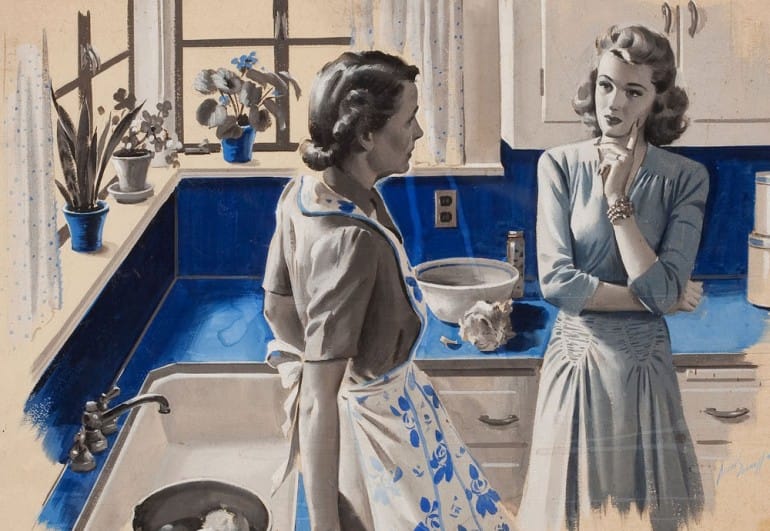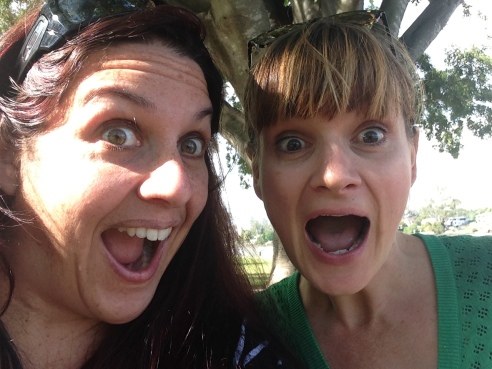We could probably guess that one of the signs of a troubled society is when conversations begin with each person competing to describe which of their lives is the busiest. The ubiquitous “I’m so busy” and similar “busy” comments have become the new black – to the extent that if people know their life is relatively peaceful and calm, they can feel quite inadequate!
This has many ramifications for us but the one I’m concerned about today is that “busy” heralds the imminent decline of real conversation which – while not meaning to be overly dramatic – ultimately affects the emotional and psychological maturity of our population.
An old Chinese proverb states that a single conversation across the table with a wise person is worth a month’s study of books. I would agree. My work as a coach puts me into real conversations with wise people quite frequently – and although I’m the one getting paid for it, I usually leave the conversation feeling like I have taken away something quite valuable.
You see in a real conversation there is real listening. The sort of listening where you’re not wishing the other person would hurry up and finish so you can speak; or planning what you’re going to say while they’re speaking; or needing to fix or mend or make better; or offer a solution; or wishing they’d hurry up so you can get back to being busy; or being so busy thinking about your own stuff and listening to yourself that you realise, with some embarrassment, that you’ve missed what they have been saying.
Real listening is just that: listening and acknowledging; not rushing to go anywhere; not needing to say anything if there is nothing to say; not judging; not getting triggered; just being with the other for a while in their shoes. Good conversationalists are comfy with silence; their own and the other person’s. Interestingly enough I’ve learned that out of the easy silence comes the most poignant insights and sometimes powerful questions that are the catalyst to completely shift perspective in the other.
Although there are many things I’ve learned about real conversation one of the most important is to let go of any desire to enter into it showing how much you know. Although it’s a fairly natural human inclination to want to show our best selves to others, trust me, it always backfires. As the French novelist Andre Maurois quipped, “Conversation would be vastly improved by the constant use of four simple words: I do not know.”
We live in a world of digital distraction and information overload with a heavy dependence on our sense of sight. Most of us spend hours looking at screens. People now sit in cafes/restaurants, walk down the street and even go to the toilet(!) looking at screens. Unless you are video-linking with someone, real conversation is not possible when individuals are looking down at a screen. This is because there are a few fundamentals to real conversation:
- presence or being here in the moment
- real human connection – the experience of “being with another” in that moment of being present and all the experiential learning that arises from that
- the gift of humour – even slightly wry humour. I’ve never yet been engaged in a real conversation where it doesn’t arise. Even if we don’t appreciate the impact of shared humour, scientific studies show overwhelming evidence of its positive impact.
- getting away from our own stuff for a while – and the relief of that seeing ourselves mirrored back in another and the strange comfort of knowing our stuff is invariably their stuff too and vice versa
- being listened to- though we may not be consciously aware of it, this simple practice alone is psychologically and emotionally uplifting – it feels good to be listened to! From a pragmatic point of view we get clearer about what’s important to us, meaning we’re better placed to make our own decisions
- sharing/receiving wisdom, if and when its required – a free gift exchange strategic thinking – it’s quite difficult to hold a strategic view all alone. Real conversation tends to stimulate broader thinking- it lifts one up and out of the mire
- practising the art of active or acute listening – the listener (often unwittingly) gets to train themselves in listening to different tones and inflections that reflect the play of emotions and to experience how they and the other are affected by that
- emotional maturity- the more we are fully present to others the more our skills of communication flourish and inevitably the more we grow in self awareness and insight.
Unsurprisingly all of these fundamentals of real conversations also happen to be the cornerstones of real relationships. When any of them are missing the relationship is likely to be compromised; for the human mind and spirit to flourish we need to be able to connect with others at a level that is beyond superficial.
Thus the satisfaction and, at times, the challenge of exploring real conversations comes from being curious enough to explore the process of communication at a deeper level. It’s an essential part of the growing up and waking up process for us as humans.
And really there is nothing to lose: in a world where people always seem to be wanting for something, real conversations ask for nothing up front but give much in return.
IMAGE CREDIT: Hero illustration of women talking in kitchen by Arthur Sarnoff
This article first appeared at http://www.jennydevine.co.nz/blog/









I love this. Especially about the ‘busy’. I feel like nobody ever has time to say anything to each other, except for how busy they are. I think we are all so busy being busy that when we finally have time to converse, we end up venting about the stress at the other person instead of just enjoying the great art of conversation – the kind that everyone walks away better from. I think it’s a sign that we need to slow down and I definitely think we need to reassess the way we glorify ‘busy’.
I so agree Kez! I have banned myself from answering ‘busy’ when someone asks me how I am. It’s boring and lazy, and I think so much of the ‘busy’ we bring on ourselves and mistake for worthy activity. I’m working on mindfulness and it’s tough, but I’m getting there!
Great article! A good conversation is much more fulfilling than most things we can engage in these days.
Absolutely! I am working on being present in every moment. It’s a work in progress but running, yoga and meditation are definitely helping.
i’m so over people asking me, especially at the supermarket! have you been busy? … I say NO I try not to be! … that shuts them up! they might have to think!!!
I am pretty good at listening to people, as well trained up over the years when there was conversation! that’s progress for ya! love m:)X